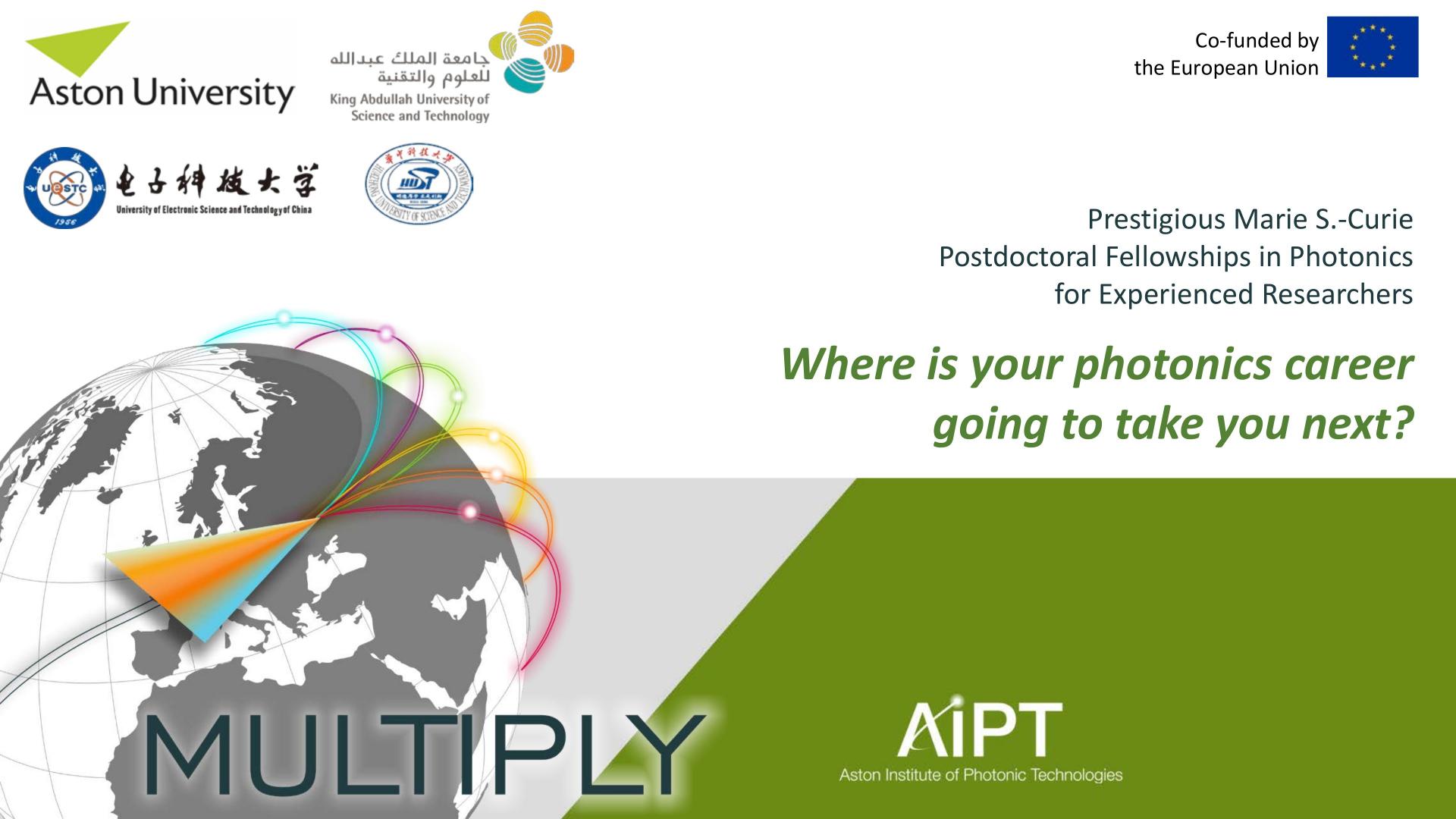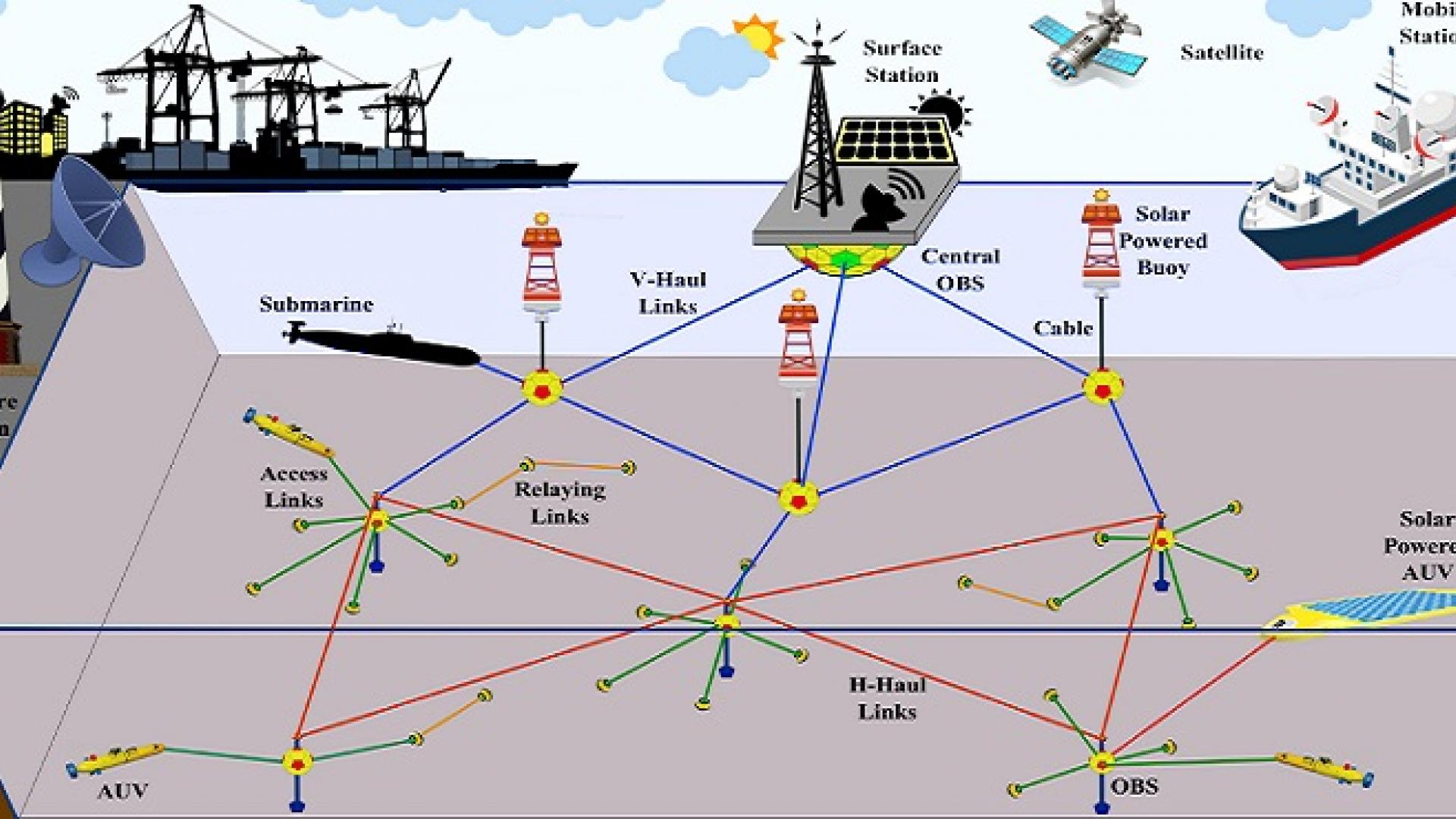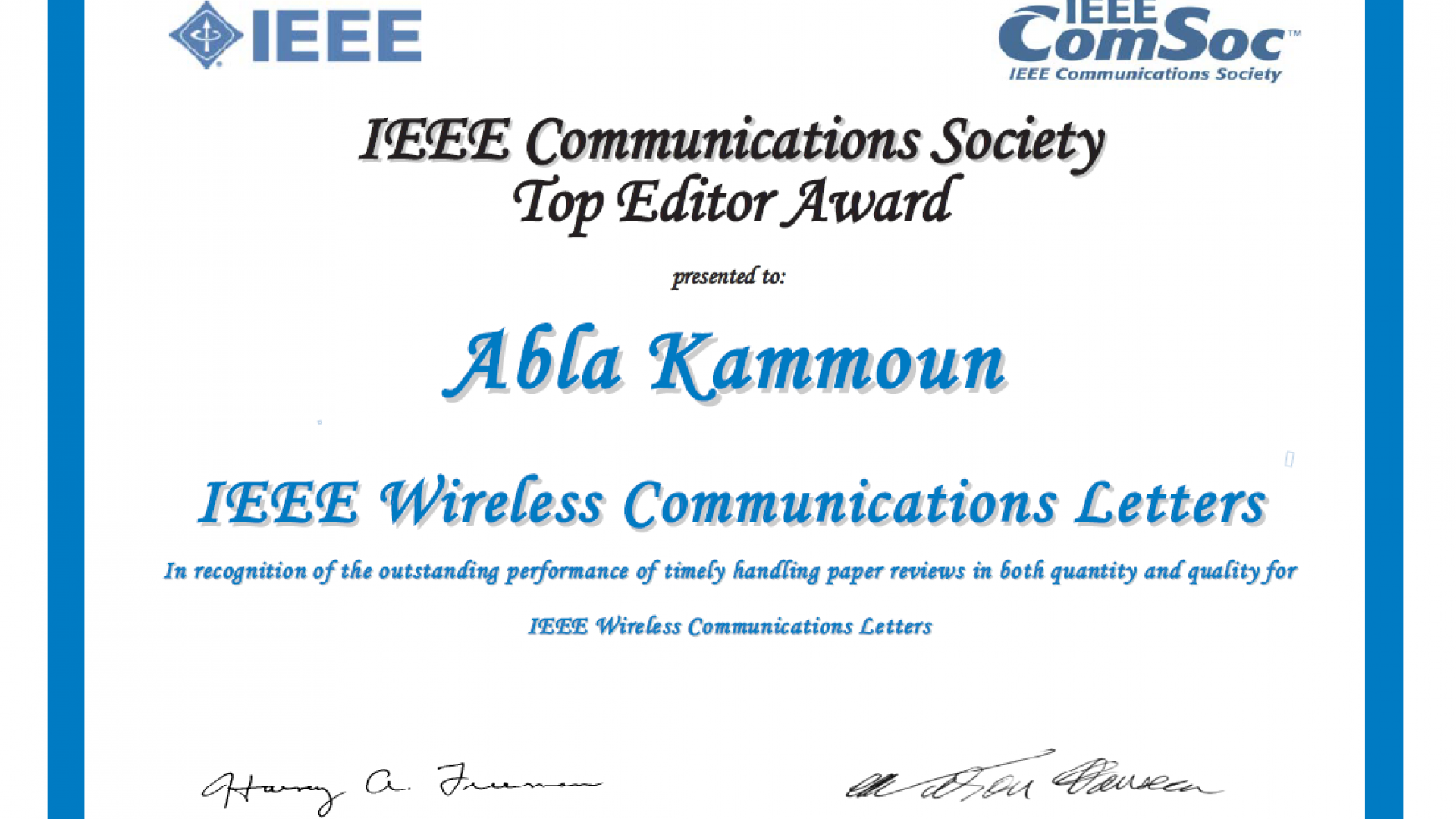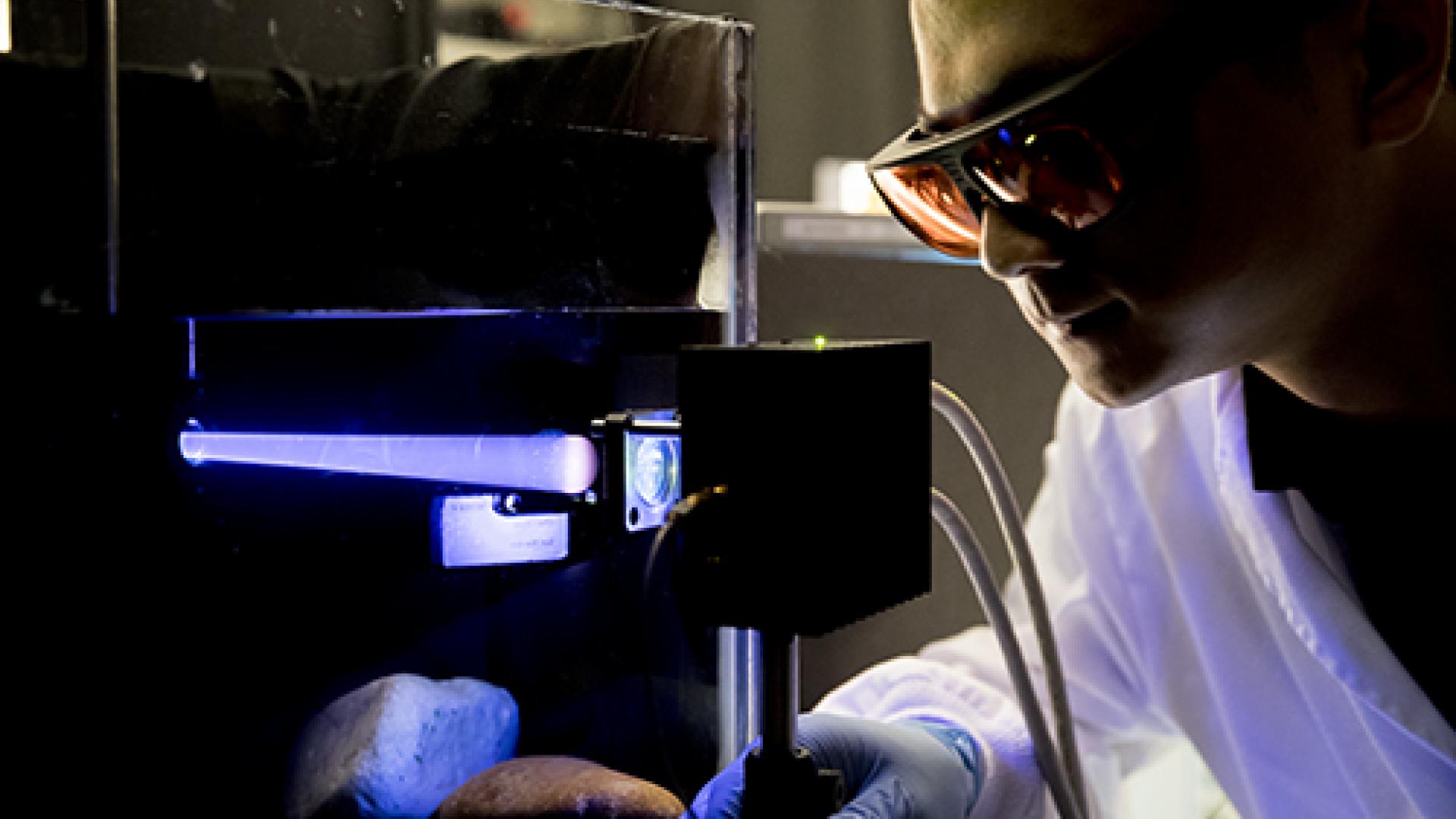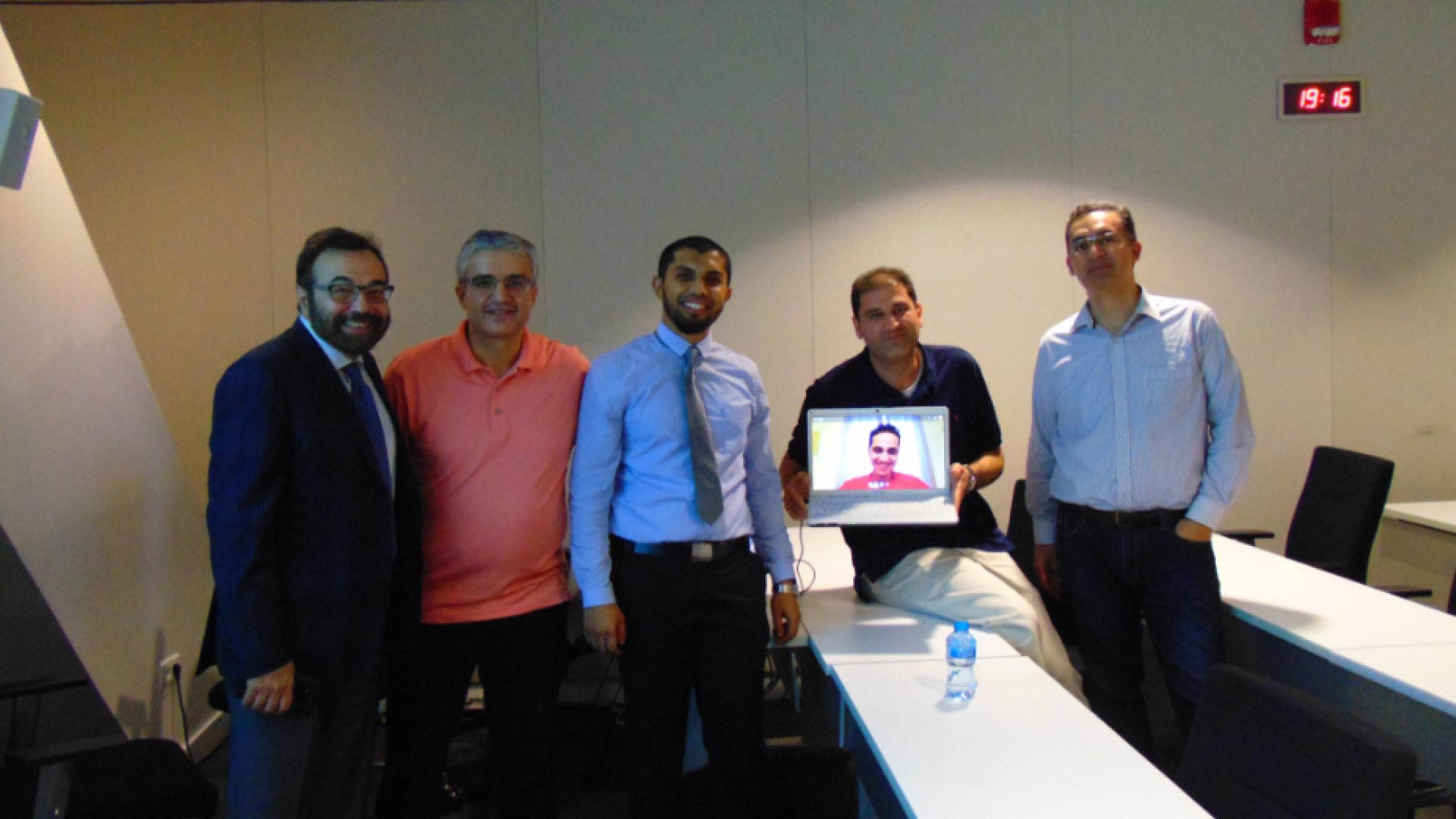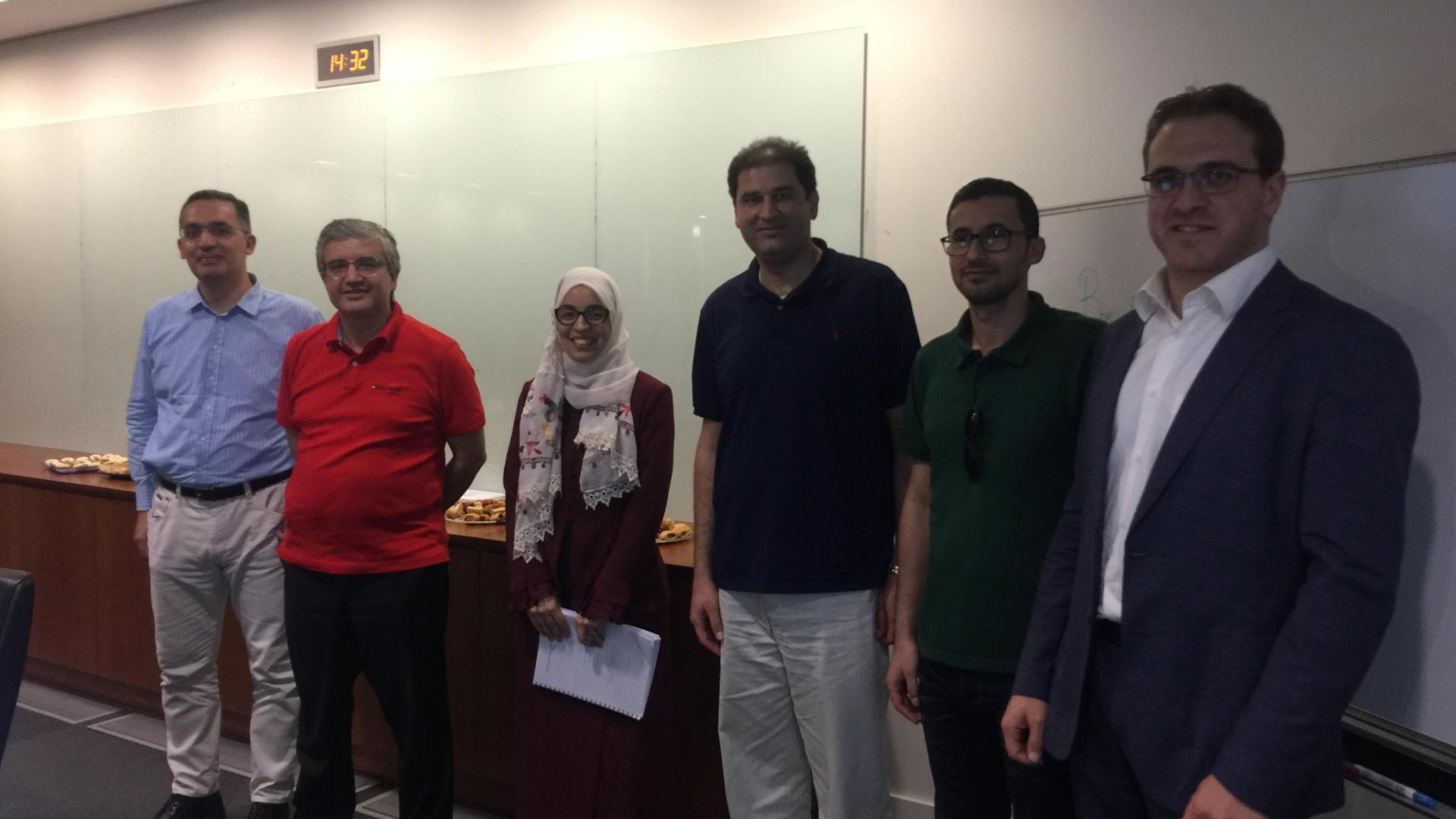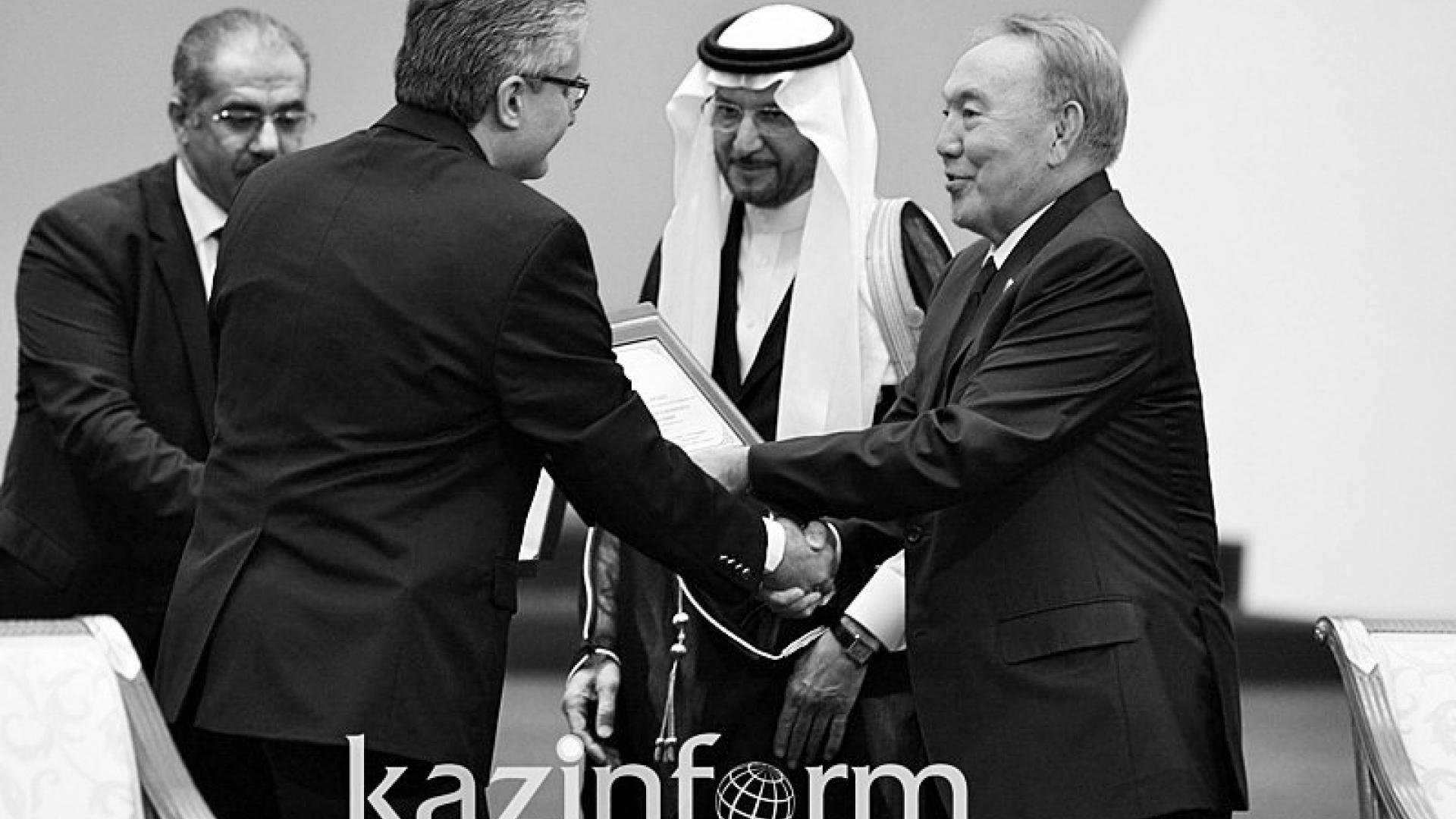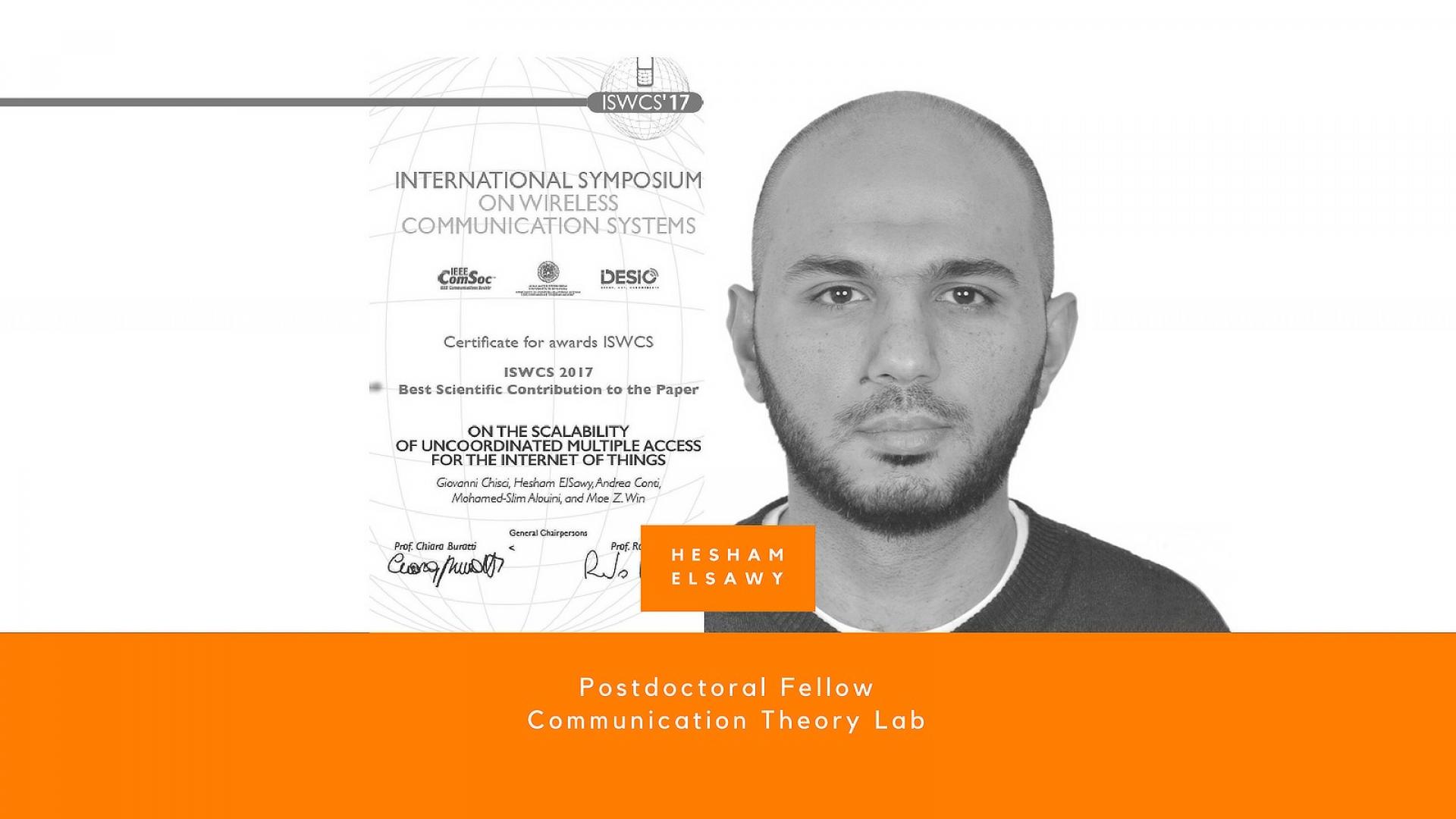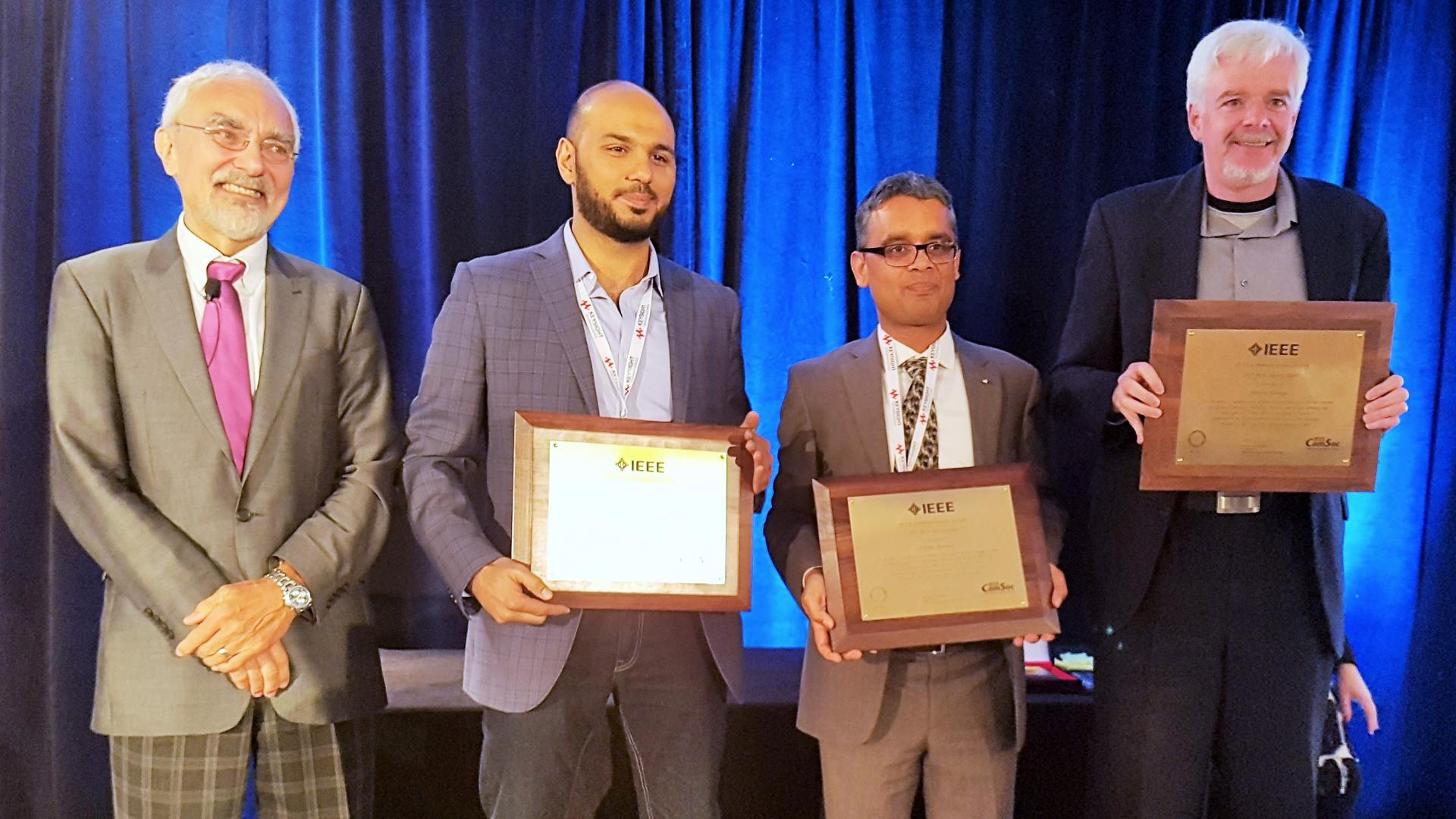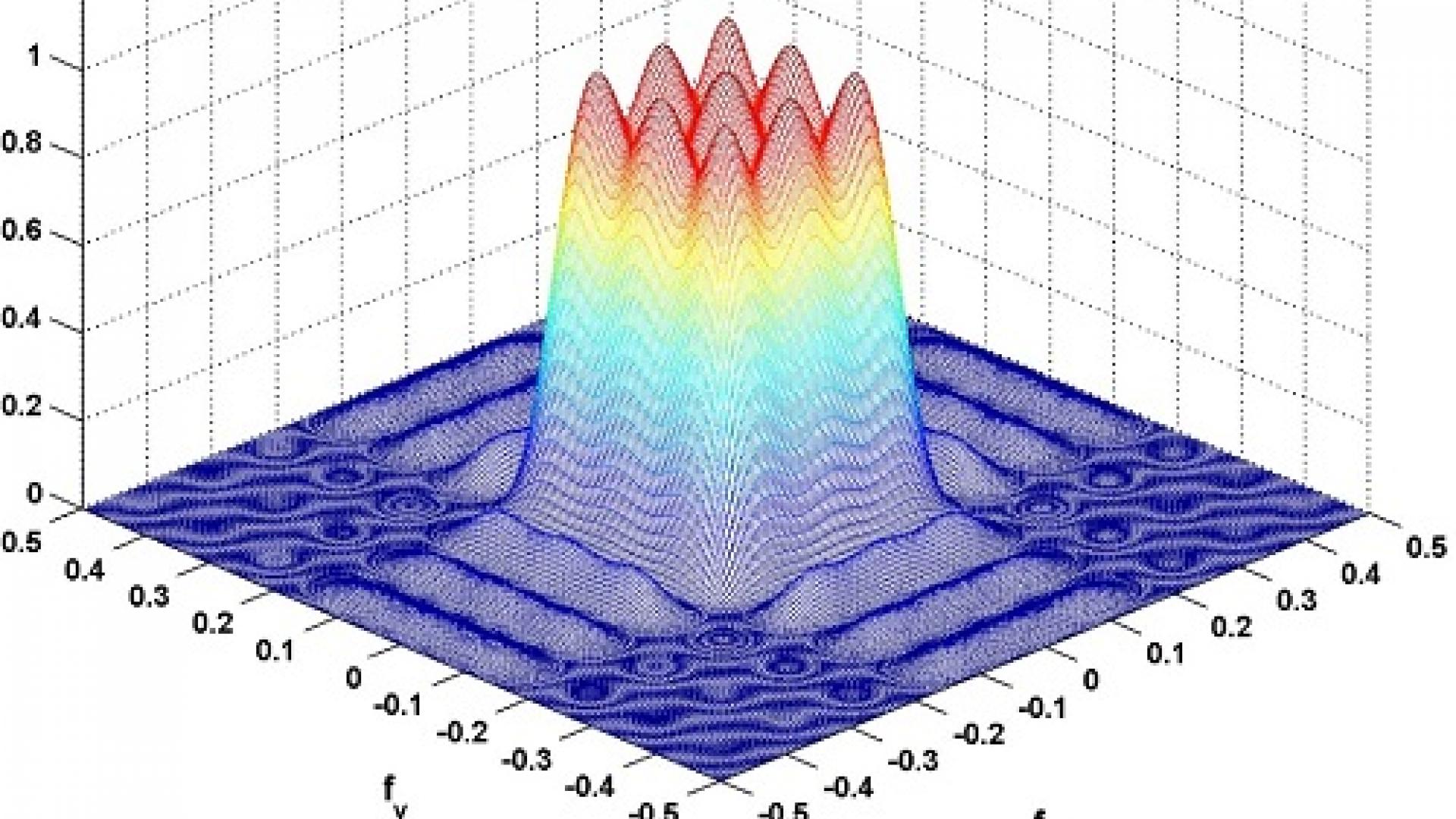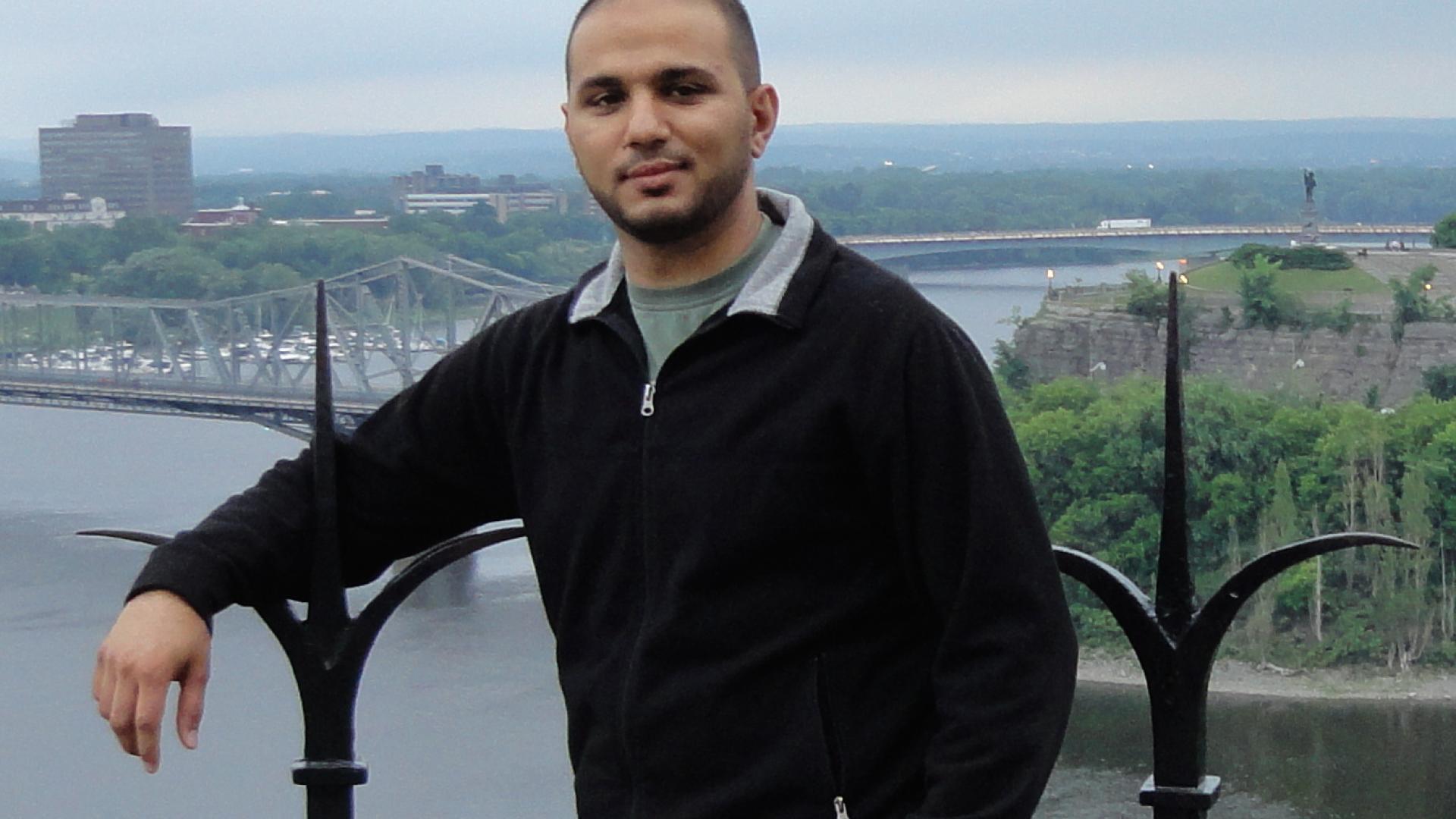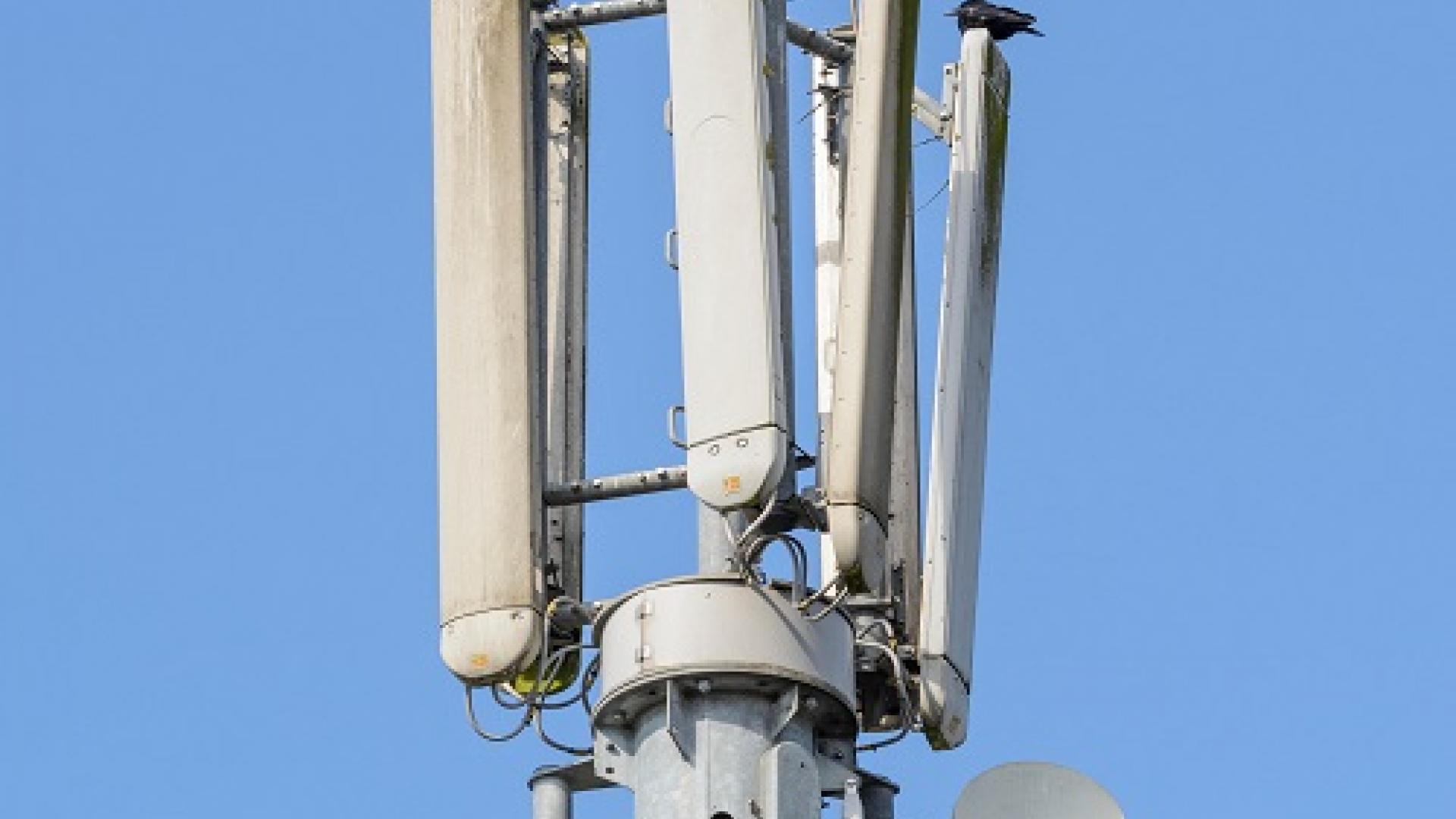Hessa Al-Quwaiee's interest in engineering started young, but in the early 2000s when Al-Quwaiee was attending high school, the path to becoming a female engineer in Saudi Arabia was not a commonly taken one.
KAUST Ph.D. student Qurrat-Ul-Ain Nadeem received a 2018 Marconi Society Paul Baran Young Scholar Award for her work in full-dimension (FD) massive multiple input multiple output (MIMO) transmission technology.
A group of professors working in the area of photonics at KAUST, most of them with CEMSE Division, offer hosting of outgoing Marie Sklodowska-Curie Fellowships in their research groups within the EU H2020 COFUND Postdoctoral Fellowship Programme MULTIPLY.
Unveiling new strategies to improve future wireless underwater sensing networks for marine research and communication.
Abla Kammoun, a research scientist based in the University's SRI - Center for Uncertainty Quantification Laboratory, recently received the Institute of Electrical and Electronics Engineers (IEEE) Wireless Communication Letters (WCL) top editor award. Kammoun's achievement is a significant honor, as every year no more than five editors are selected for this award for their significant contributions and exemplary services to the IEEE WCL. The goal of the IEEE WCL is the rapid dissemination of original, cutting-edge ideas and timely, significant contributions in the theory and applications of wireless communications.
High-speed communication systems based on ultraviolet radiation are now in sight.
On November 26, 2017, Lokman Sboui successfully defended his Ph.D. thesis on "Towards Reliable, Scalable, and Energy Efficient Cognitive Radio Systems" under the supervision of Prof. Mohamed-Slim Alouini.
We congratulate Dr. Sboui for his achievement! Everyone at CTL wishes him all the best for the future.
On November 2nd, 2017, Fatma Benkhelifa successfully defended her Ph.D. thesis on "Towards Perpetual Energy Operation in Wireless Communication Systems" under the supervision of Prof. Mohamed-Slim Alouini.
We congratulate Dr. Benkhelifa for her achievement!
Everyone at CTL wishes her all the best for the future.
Prof. Alouini was honored in Engineering for his long-term research in Telecommunication. The other selected scientists were: for Chemistry, Prof. Yusuf Yagci from Istanbul Technical University, Istanbul, Turkey; for Medicine, Dr. Assan Jaye from the Medical Research Council in Banjul, Gambia, for Physics, Prof. Rajaâ Cherkaoui El Moursli from the Mohammed V University in Rabat, Morocco; and for Biology, Dr. Yerlan Ramankulov from the National Center for Biotechnology in Astana, Kazhakstan.
The imminent era of the smart world is foreseen to involve massively many power and computationally constraint wireless devices with sporadic traffic patterns. The surging Internet of things (IoT) and cyber physical systems (CPS) are clear examples that rely on massive wireless networks. Hence, realizing such extensive wireless connectivity is mandatory to unlock the potentials and reap the benefits of the foreseen smart era.
The Internet of Everything in quickly growing and vastly enlarging its spectrum of applications. At the same time, traffic demand per-user is increasing dramatically. It is estimated that by 2020 there will be more than 50 billion devices connected. The cellular support infrastructure should be developed accordingly, making of network performance analysis a critical task. The existing elementary probability methods are currently inefficient when it comes to detecting mobility faults and interference.
A new method for shaping the waveform generated by multi-antenna radar systems is inexpensive and practical.
Dr. Ahmed Bader, a CEMSE Post-Doctoral Fellow in electrical engineering, won the IEEE Communications Society (ComSoc) Young Professionals (YPs) Best Innovation Award at Wireless Communications and Networking Conference 2017, in San Francisco, USA, on March 22.
Dr. Hesham ElSawy has been elevated to the rank of Senior Member of IEEE, the world's largest technical professional organization for the advancement of technology. The achievement is considered a significant honor since it is granted only to researchers who have shown a significance and continuous performance over a period of five years in professional practice. At present, only an 8% of 400,000 IEEE members have received this honor because of their superior professional achievements.
An efficient wireless signal optimization scheme achieves peak performance for next-generation mobile communications.
